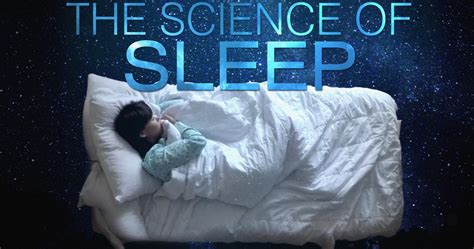Sleep is essential for our physical and mental health. It allows our bodies to repair themselves, consolidates memories, and regulates our hormones. But despite its importance, we still don’t fully understand the science of sleep.

The Sleep Cycle
The sleep cycle is a complex process that involves four stages:
- Stage 1: This is the lightest stage of sleep, and it typically lasts for 5-10 minutes. During this stage, your body begins to relax and your brain activity slows down.
- Stage 2: This stage is slightly deeper than stage 1, and it typically lasts for 20-30 minutes. During this stage, your body temperature drops and your heart rate slows down.
- Stage 3: This is the deepest stage of sleep, and it typically lasts for 20-40 minutes. During this stage, your body is completely relaxed and your brain activity is minimal.
- REM sleep: REM (rapid eye movement) sleep is the stage of sleep in which we dream. This stage typically lasts for 90-120 minutes, and it occurs several times throughout the night.
The Science of Sleep: What We Know
We know a lot about the science of sleep, but there are still many unanswered questions. Some of the main things we know about sleep include:
- Sleep is essential for our physical and mental health. Sleep allows our bodies to repair themselves, consolidates memories, and regulates our hormones.
- The average person needs 7-8 hours of sleep per night. However, the amount of sleep an individual needs varies depending on their age, health, and activity level.
- Sleep is regulated by a complex network of hormones and neurotransmitters. The main hormones involved in sleep are melatonin and cortisol.
- There are a number of factors that can disrupt sleep, including stress, anxiety, caffeine, alcohol, and certain medications.
The Science of Sleep: What We Don’t Know
There are still many unanswered questions about the science of sleep. Some of the main areas that we still need to learn more about include:
- The exact role of sleep in memory consolidation. We know that sleep is essential for memory consolidation, but we don’t fully understand how this process works.
- The role of sleep in regulating emotions. Sleep is known to play a role in regulating emotions, but we don’t fully understand how this works.
- The effects of sleep deprivation on the brain and body. We know that sleep deprivation can have negative effects on our physical and mental health, but we don’t fully understand the long-term effects of sleep deprivation.
The Future of Sleep Research
Sleep research is a rapidly growing field, and we are constantly learning more about the science of sleep. In the future, we can expect to learn more about the role of sleep in memory consolidation, the role of sleep in regulating emotions, and the effects of sleep deprivation on the brain and body. This research will help us to develop new treatments for sleep disorders and improve our overall sleep health.
10 Things You Can Do to Improve Your Sleep
If you are struggling to get a good night’s sleep, there are a number of things you can do to improve your sleep habits. Some of the most effective things you can do include:
- Establish a regular sleep schedule. Go to bed and wake up at the same time each day, even on weekends.
- Create a relaxing bedtime routine. Wind down before bed by reading a book, taking a bath, or listening to calming music.
- Make sure your bedroom is dark, quiet, and cool. These conditions are ideal for sleep.
- Avoid caffeine and alcohol before bed. These substances can interfere with sleep.
- Get regular exercise. Exercise can help you to fall asleep more easily and sleep more soundly.
- Establish a healthy diet. Eating a healthy diet can help you to improve your overall health and well-being, which can lead to better sleep.
- Limit screen time before bed. The light from screens can interfere with sleep.
- Avoid naps during the day. Naps can make it harder to fall asleep at night.
- See a doctor if you are struggling to get a good night’s sleep. There may be an underlying medical condition that is interfering with your sleep.
